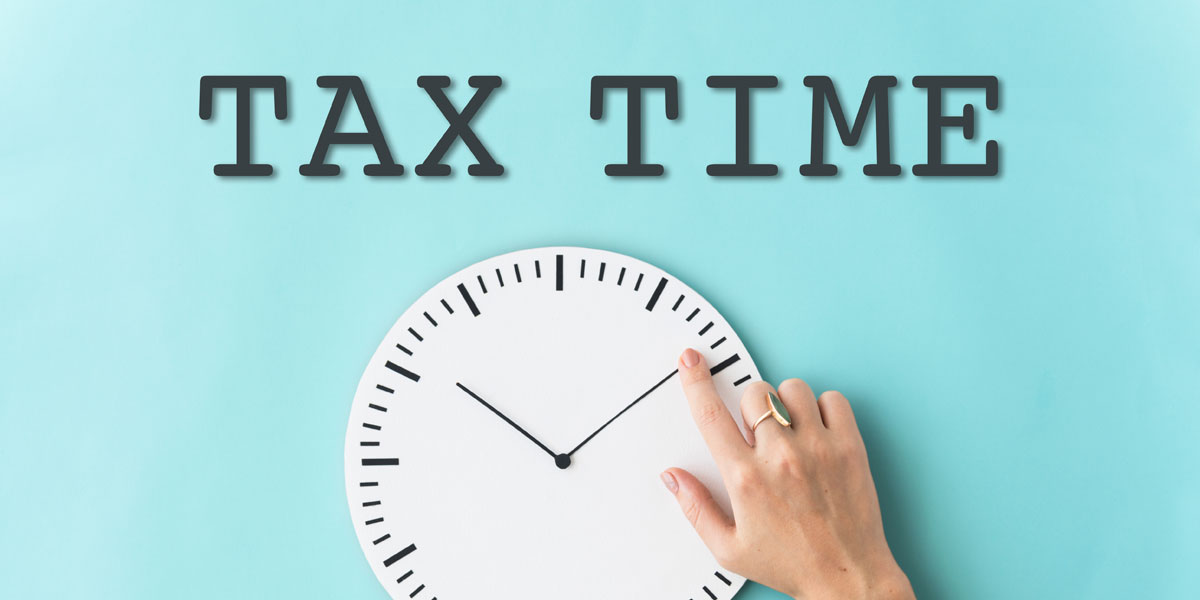Filing your taxes as a freelancer doesn’t have to be complicated. Here’s your guide to filing taxes the right way as an independent contractor in Oregon and beyond.
In 2023, 64 Million Americans worked freelance jobs, which equates to 38% of the workforce in the U.S. Whether it’s a full-time gig or a side hustle, freelancing is an excellent way to earn money.
Making your own schedule, eliminating your commute time, and essentially being your own boss can be liberating. You can’t spell “freelancing” without “free,” but with the freedom of self-employment also comes the requirement to be extremely diligent about your finances. As a full-time freelancer, you have to pay for your health insurance, buy your own equipment, and save enough money for taxes.
Whether you’re already living the freelancer life or are considering pivoting to self-employment, you might be wondering how to file taxes in Oregon as a freelancer. CCCU is more than just a Portland credit union — we’re committed to providing financial guidance to people on all different career paths. Ready to file your taxes as an independent contractor? Consider this your guide on how to file taxes as a freelancer.
What is the Minimum Income to File Self-Employment Tax in Oregon?
You have to pay self-employment tax in Oregon if you fall in either of the categories during the financial year:-
You had $400 or more in net earnings from self-employment.
-
You are self-employed in the eyes of the IRS if you received a 1099 Form from an entity you worked for during the period.
-
You had $108.28 or more in income from church employment.
If your income falls in any of the above-mentioned categories, you are mandated to pay a fixed Oregon self-employment tax rate. If your net earning from self-employment is less than $400, you will still be required to file an income tax return as per the filing requirement listed in Form 1040 and 1040-SR.
How much should I save for taxes if I’m an independent contractor?
As far as the IRS and the Oregon Department of Revenue are concerned, a freelancer is an independent contractor. So, how much are independent contractors supposed to save for taxes? A good rule of thumb is to set aside about 30% of your income. While this might seem high, it accounts for self-employment taxes (FICA) in addition to your regular income tax.
FICA stands for Federal Insurance Contributions Act, a law that requires American workers to pay for Medicare and Social Security. For regular employees, these taxes are withheld from their checks every pay period. Self-employment taxes are 15.3% of your earnings up to $128,400, and 2.9% of any income above that amount. Taxpayers who work for themselves must cover the entire 15.3% of these taxes in addition to paying normal income tax rates.
Subscribe for financial tips straight to your inbox!
What’s the independent contractor tax rate in Oregon?
Even if you don’t receive a 1099 form from some of your clients, you must report all your income when you file your taxes. In Oregon, the tax rate for independent contractors depends on their taxable income for the year.
Here’s how the tax rate breaks down for Oregon freelancers:
Income: Tax rate:
$0 – $9,525 10%
$9,526 – $38,700 12%
$38,701 – $82,500 22%
$82,501 – $157,500 24%
$157,501 – $200,000 32%
$200,001 – $500,000 35%
$500,001 and above 37%
For example, if you made $45,000 as a freelancer last year, 22% of your income would be allotted to income taxes. Of course, 22% plus the 15.3% for self-employment taxes add up to 37.3%. That being said, most freelancers can deduct various expenses, which lowers their total taxable income. For this reason, saving at least 30% of your income is usually a safe bet.
Paying quarterly taxes as a freelancer
As most know, the deadline for paying your annual taxes is April 15. And yet, many freelancers are unaware that they’re supposed to pay their taxes on a quarterly basis.
Basically, each quarter, you pay the IRS your estimated taxes for the previous three months. Aside from April 15, the deadlines vary slightly from year to year, but they will fall within a couple of days of June 15, September 15, and January 15.
Any independent contractors who expect to pay $1,000 or more in taxes for the year have to pay quarterly taxes. What happens if you don’t pay your quarterly taxes? In most cases, you’ll have to pay a small penalty amount, kind of like an interest charge. Also, the IRS might waive the penalty in some instances.
Tax deductions for freelancers
If all of this information is a little overwhelming, you might be relieved to hear about the various tax deductions freelancers can claim.
Some of the most common tax deductions for independent contractors include:
- Home office (a portion of your rent or mortgage payment)
- Utilities such as electricity, water, and waste management services
- Phone and internet
- Equipment such as a computer, printer, work phone, or camera
- Office supplies and software
- Business meals and office snacks
- Retirement savings contributions
- Health insurance premium and medical expenses (must add up to 10% of more of your income)
- Marketing expenses and other professional services
- Education and research
- Travel and transportation, including airfare, lodging, parking, car services, and some vehicle expenses
Not all freelancers can deduct each item on this list, and some may be able to deduct other expenses. Also, keep in mind that in many cases, you won’t be able to deduct the full amount of each expense. For example, if you use your cell phone for both business and personal use, you can only deduct a portion of the bill.
Your business expenses will be subtracted from your total income for the year, which will lower your taxable income. So, if you made $40,000 last year and deduct $5,000 in expenses, your taxable income will be $35,000. This means your tax rate will drop from 22% to 12%.
Be sure to track all your business expenses carefully and maintain your records for at least seven years.
The IRS usually only audits returns from the previous three years, but they may go as far back as six years if they detect a substantial error.
In today’s world, filing your taxes is fairly straightforward, especially if you use an online tool like TurboTax or H&R Block. The best thing you can do to prepare yourself for tax season is to set aside plenty of money and be thorough and precise about tracking your expenses.
Tools that can help make filing your taxes less stressful.
1. Business Checking Account: Streamline Your Tax Reporting
A Business Checking Account is crucial for maintaining a clear boundary between your personal and business finances. It simplifies the process of tracking income and expenses, ensuring accurate reporting during tax season. This separation aids in straightforward accounting and can integrate seamlessly with financial software, reducing the burden during tax filings.
2. Business Savings Account: Prepare for Tax Time
Utilize a Business Savings Account to set aside a portion of each payment for tax obligations. By systematically transferring a set percentage of income to this account, freelancers can ensure they have the necessary funds readily available when taxes are due, avoiding last-minute financial stress.
3. Business Certificates: Secure and Grow Your Funds
Investing in Business Certificates can help freelancers grow their savings through higher interest rates compared to regular savings accounts. While indirectly related to tax payments, the additional income generated can provide a financial cushion that supports tax liabilities or other business expenses.
4. Business Line of Credit: Ensure Liquidity During Tax Season
A Business Line of Credit offers freelancers flexible access to funds, which can be particularly useful during tax season if cash flow is tight. This financial product allows for borrowing as needed, providing a safety net that can cover tax payments or other urgent business expenses without disrupting financial stability.
5. Business Credit Card: Manage Expenses and Boost Credit
A Business Credit Card helps freelancers manage business-related expenses by providing a clear record of transactions, which is invaluable for itemizing deductions and managing budgets. The benefits of using a business credit card extend beyond convenience to helping build a strong credit profile, which is beneficial for any future business financing needs.
Prepare for Oregon Tax Season with CCCU
The freedom of self-employment brings many rewards, particularly if you're passionate about your field. However, budgeting for taxes often surprises new freelancers, making financial management crucial from the start. At Consolidated Community Credit Union, we recommend not only a designated tax savings account but also exploring our comprehensive suite of business financial products designed to support your freelance journey.
We offer robust Business Checking Accounts for streamlined financial tracking and a Business Savings Account specifically for setting aside tax funds. Consider our Business Certificates for higher interest savings, or secure a Business Line of Credit to manage cash flow during lean periods. Our Business Credit Cards can also help manage expenses while building your business credit. Open an account today, or visit one of our Portland credit union branches to learn how our tailored financial solutions can support your independent career.



